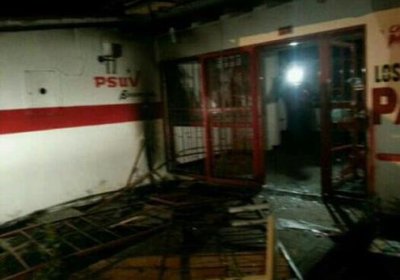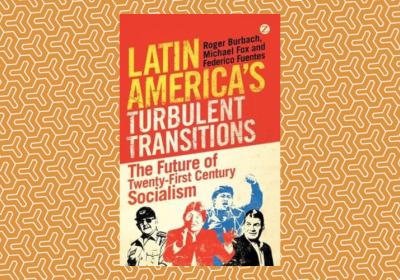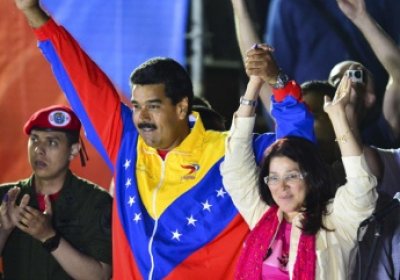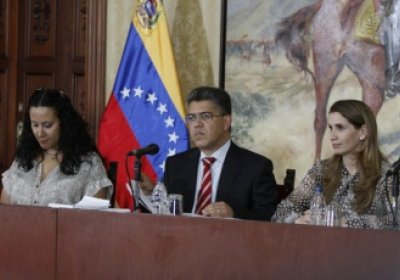The Australia-Venezuela Solidarity Network released this statement on April 17.
***
The Australia-Venezuela Solidarity Network joins with all those voices for democracy and peace to call for an immediate end to the opposition-initiated violence now occurring in Venezuela.
On April 14, a majority of Venezuelans voted for the United Socialist Party of Venezuela’s (PSUV) presidential candidate, Nicolas Maduro. In doing so, they voted to continue the Bolivarian revolution previously led by Hugo Chávez.
Venezuela
The room erupted into cheers when the election results were announced. For hours, the city of Merida's most ardent supporters of socialist presidential candidate Nicolas Maduro had gathered in the local offices of the United Socialist Party of Venezuela (PSUV). However, after a few moments, the closeness of the numbers sank in.
At the time of writing, the National Electoral Council (CNE) had announced that with 99% of votes counted, the PSUV's Maduro won with 50.6%. His closest rival, Henrique Capriles, received 49.1%; giving Maduro a slim 1.5% victory.
In the aftermath of Venezuela's April 14 presidential elections that was won by the candidate of the Boliviaran revolution, Nicolas Maduro, the right-wing opposition has refused to respect the result and is carrying out a campaign of often-violent street protests.
The Real News interviews Venezuela Analysis founder Gregory Wilpert on Venezuela's April 14 elections, in which the candidate of the Bolivarian revolution Nicolas Maduro beat the right-wing opposition candidate Henrique Caprilles by more than 300,000 votes.
In a quirk of history, Margaret Thatcher died a little more than one month after Hugo Chavez. Thatcher was a figurehead for the global class war in the 1980s and '90s known as “neoliberalism”. Chavez was a figurehead for the struggle against it and the alternative starting to be built in Latin America over the past decade.
In the week leading up to Venezuela’s April 14 presidential elections, whistle-blowing website WikiLeaks published a classified cable indicating that US-based aid organisations were working to overthrow the government and defend US corporate interests in the Andean country.
Nicolas Maduro, the candidate for the Unitede Socialist Party of Venezuela, has won the Venezuelan presidential election with 50.66 percent of the vote against 49.07 percent for opposition candidate Henrique Capriles Radonski.
Maduro gave a victory speech immediately after, while Capriles initially refused to recognize the results.
The “first bulletin” results were announced by the president of the National Electoral Council (CNE), Tibisay Lucena, at around 11:20 p.m. Venezuelan time, with 99.12 percent of the votes totaled, enough to give Maduro an irreversible victory.
The results of Venezuela's presidential elections in a few weeks may well predictable, with polls showing socialist candidate Nicolas Maduro well ahead of his right-wing opponent. But we are going through a fragile, vulnerable period, with a future that is less predictable.
These elections, as the start of the era of the Bolivarian revolution without its historic leader Hugo Chavez, have special characteristics and factors that go beyond the vote.
Unity and leadership
It takes more than an individual to upset the international chessboard as dramatically as it has been in the past decade.
Forces unleashed by the logic of capitalism have drawn a new geopolitical map, in which the United States has lost its former place as the world's centre of gravity and the ultimate arbiter of the key issues of the economy, politics and war.
Yet, though changes of such magnitude were obviously not the work of one person, the late Venezuelan president Hugo Chavez’s hallmark was a profound intuition of this impending change.
Washington has simultaneously called for cooperation from Venezuela and worked to undermine the oil-rich nation's interim government.
Shortly after the death of socialist president Hugo Chavez on March 5, the White House issued a statement expressing an “interest in developing a constructive relationship with the Venezuelan government”.
“As Venezuela begins a new chapter in its history, the United States remains committed to policies that promote democratic principles, the rule of law, and respect for human rights,” the statement read.
Venezuelan officials announced on Wednesday that they are breaking off talks with US diplomats, accusing the United States government of interfering in Venezuela’s internal affairs ahead of next month’s elections.
“This line of communication is now suspended, postponed until the United States gives a clear message about what kind of relationship they want,” announced Venezuela’s Foreign Minister Elías Jaua on Wednesday.
As an Aboriginal woman, from the Kairi and Gubbi Gubbi nations of central Queensland, I identify with oppressed people around the world and I see our liberation as tied closely to that of other indigenous and subjugated peoples.
In September last year, I had the great pleasure of participating in the Australian Venezuelan Solidarity Network Brigade.
- Previous page
- Page 46
- Next page










